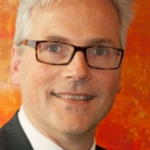Jan Smit – 24 november 2016
 The materialistic approach to health and illness has brought medicine some spectacular revolutions, but it has also led to ‘solutions’ that bring people no benefit. A rediscovery of the meaning of health and illness could lead to more meaningful care for both patients and healthcare providers.
The materialistic approach to health and illness has brought medicine some spectacular revolutions, but it has also led to ‘solutions’ that bring people no benefit. A rediscovery of the meaning of health and illness could lead to more meaningful care for both patients and healthcare providers.
Right through to medieval times, health was usually considered to be a natural equilibrium between body, soul and the environment. That changed in the 17th century, when scientists and philosophers such as René Descartes, William Harvey and Herman Boerhaave began to see the body as a machine and illness as a mechanical defect. The dualism between body and soul led to another division: physicians were concerned with the body, priests with the soul.
Tremendous progress
That materialistic vision led to tremendous progress in medicine. The introduction of vaccinations and antibiotics reduced the number of deaths from infectious diseases. Sophisticated techniques have made it possible to unravel non-transmissible diseases such as cancer and cardiovascular diseases, and more effective treatment methods have been implemented. In addition, transplants, regenerative medicine and medical technologies bring us new organs; in short, humans are becoming repairable systems, with spare parts available to order.
Medicalization
The imperfections of technology-driven medicine have, however, led to fragmentation, medicalization and definitions of illness and health that no longer bear any relationship to the issue of giving meaning to the life of the individual patient. Many people suffer from more than one illness. They are channelled through multiple chains of care by various doctors: a separate doctor for each organ.
Overweight and Type 2 Diabetes Mellitus, in which pathogenic environmental factors play a major role, are medicalized to the tune of 1.7 billion euros a year; this includes stomach reducing operations. Environmental factors, on the other hand, are addressed far less.
The efficacy of cancer treatments is expressed in “progression-free survival rates”, a concept that is difficult for patients to grasp, and not one that is consistent with what they expect from their remaining lives. In my work as a specialist in internal medicine, I treat patients with hormonal disorders. According to the standards of my professional group, they are nearly all cured. Many patients, however, experience severe restrictions in their physical and mental functioning. Finally, many of the fatal illnesses of the past have now, thanks to medical achievements, become chronic illnesses for which the emphasis lies more on counselling than on healing. And that takes time and attention, neither of which can be specified on an expense claim as ‘treatment’.
Meaning for the patient
Illness and health entail far more than just mutations in our DNA or abnormal substances in the blood. Illness disrupts the relationships in body and mind and has a knock-on effect on what people see as meaningfulness and expectations, as described so well by William Osler, George Engel and Machteld Huber. For this reason, treatment goals can never be derived from individual biological profiles alone, but they have to align with the meaning the patient himself attaches to health. There is also, of course, a societal context for all this: when the environment in which we live promotes illness, we have to ask how meaningful the trappings of our society actually are.
Existential questions
The relationship between healthcare providers and patients is a meeting between people in a situation of vulnerability, and this applies equally as much to the person needing care as to the healthcare provider. The existential questions that patients (and their healthcare providers) ask, serve as a compass for our reflections upon health and illness and can, as a result, lead to more meaningful care; care that is not centred on the biological profile of the patient but on the person as a whole. In recent months I have been offering my patients with hormone disorders a programme in which it is not their illness that is the central focus but the personal goals that they wish to achieve. Besides the necessary medical interventions, that also means an individual rehabilitation programme. This approach not only leads to better results for my patients, but it makes me feel better as well.
Jan Smit is professor of internal medicine at Radboud University Medical Center, Nijmegen, NL